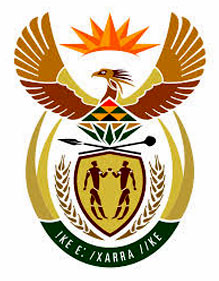|
Getting your Trinity Audio player ready...
|

Our new three-part series takes a closer look at the newly enacted Public Administration Management Act. Part one introduces the legislation. In part two, read about reactions to the Act and in part three, we take a closer look at the state’s plans for its proposed integrity unit.
In December President Jacob Zuma signed the Public Administration Management (PAM) Act into law – this piece of legislation has been keenly awaited, as it firmly establishes the norms and standards against which public administration in all three spheres of government must operate and it establishes yet more guidelines for the conduct and levels of ethics expected from this sector.
The PAM Act will, among other provisions, help departments to make better use of staff resources; provide for the establishment of the National School of Government; and establish the Public Administration Ethics, Integrity and Disciplinary Technical Assistance Unit.
Importantly, the Act makes a strong statement about the disclosure of financial interests, and doing business with the state. Employees found to have conducted business with the state, either in their own right or as a director of a public or private company conducting business with the state, may be fined and/or imprisoned, or fired.
These functions, and more, will establish a culture of compliance and “promote a high standard of professional ethics in the public administration”, according to the Presidency. The Department of Public Service and Administration, which is responsible for its enforcement, says the Act sends a “clear message to corrupt public servants that corruption, maladministration and unethical conduct will not be tolerated”.
The PAM Bill was passed in Parliament in March 2014. Zuma is yet to proclaim a commencement date for the Act.
Covering all the bases
The Act endeavours to cover all the bases of public administration. In chapter two it confirms the principles in terms of which public institutions must be governed – for instance, they must hold themselves accountable to the public, and they must provide the public with “timely, accessible and accurate information”.
Chapter three regulates employment in the public service, particularly transfers, secondments and disclosure of financial interests by public servants, as well as public servants doing business with the state. In chapter four the Act covers capacity development and training. This section expands on the proposed National School of Government, a higher education institution that would “promote the progressive realisation of the values and principles governing public administration and enhance the quality, extent and impact of the development of human resource capacity in institutions”. This is a highly positive development that, if effectively implemented, will result in a public service sector that is better able to carry out its work.
Chapter five discusses the use of information and communication technologies in public administration, and chapter six talks about the highly-anticipated ethics, integrity and disciplinary technical assistance unit.
This unit has been established by the government to "promote and enhance good ethics and integrity within the public administration”. It will be discussed in more detail in part three.
Chapter seven describes the minimum norms and standards that will be applied to the conduct and professional function of government employees, while chapter eight further elaborates on the compliance with the norms and standards.
Pointing out deficiencies in the PAM Bill
Corruption Watch first submitted written comments on the PAM Bill to the Department of Public Service and Administration in July 2013, after then-minister Lindiwe Sisulu called for public comment on the bill. In our submissions, we expressed our full support to the department for its efforts to improve the functions of the public service and amongst others, welcomed the state’s plan to establish an anti-corruption bureau as well as the proposed cooling off period, which would enforce a delay before certain public officials could enter the private sector.
In March 2014 Corruption Watch (CW) made submissions to Parliament’s Portfolio Committee on Public Service and Administration regarding the PAM Bill. CW spoke out because two key provisions that were introduced in the earlier version of the PAM Bill, had been excised.
Firstly, CW called for the reintroduction of the cooling-off period, which would play a crucial role in ensuring that public officials could not manipulate tenders to favour a firm they intended to join once it had secured a juicy government contract. CW submitted that such a period is necessary in order to:
- protect state proprietary information;
- limit the potential influence of the prospect of a lucrative private employment opportunity in public decision-making; and
- prevent corruption and the appearance of corruption.
In addition, CW called for the reintroduction of the anti-corruption bureau into the PAM Bill. The anti-corruption bureau was replaced by provisions creating a technical support unit, which would not have the key investigative powers that were conferred on the anti-corruption bureau. CW submitted that the state is constitutionally required to establish effective anti-corruption mechanisms and that the bureau was a laudable attempt to do so. It should thus be reintroduced.





